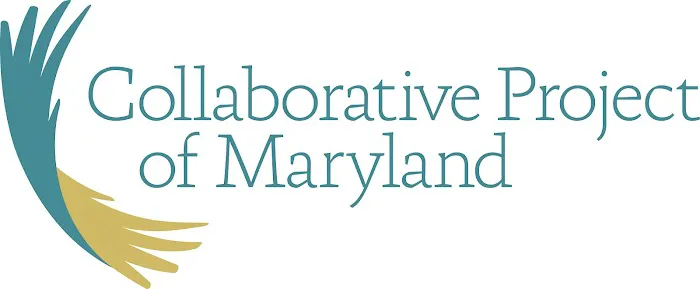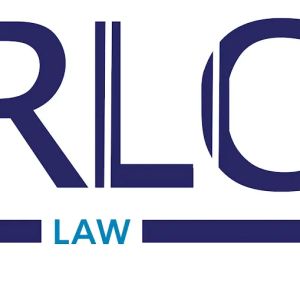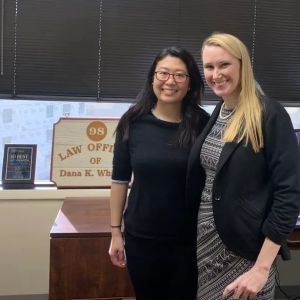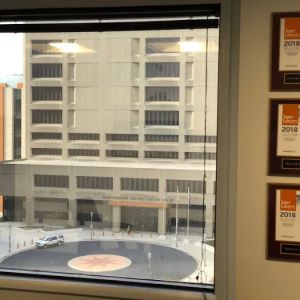Maryland Academy of Collaborative Professionals
Overview:
Open Hours:

Introduce
For many individuals and families in Maryland, the thought of legal disputes, particularly those involving separation, divorce, or child custody, conjures images of contentious courtroom battles, escalating costs, and emotional distress. However, there's a growing and increasingly popular alternative in Maryland that offers a fundamentally different approach: Collaborative Practice. The Maryland Academy of Collaborative Professionals is at the forefront of this movement, providing a network of specially trained legal, financial, and mental health professionals dedicated to resolving disputes respectfully and outside of the traditional court system.
Collaborative Practice is about empowering individuals to resolve their legal disputes without judges making decisions for them, creating solutions that are balanced, respectful, and lasting. It’s a client-centered process that shelters families from courtroom stress and focuses on open communication, cooperation, and integrity. For Maryland residents seeking a healthier, more dignified way to navigate family transitions, the Maryland Academy of Collaborative Professionals offers a path forward. This article will delve into what the Academy represents, its location, the services its members offer, and why this approach is proving to be a better way for countless families across the state.
The Maryland Academy of Collaborative Professionals is conveniently situated in Rockville, Maryland, making it a central and accessible resource for individuals and families throughout Montgomery County and beyond. This strategic location ensures that those seeking a non-adversarial approach to dispute resolution can easily connect with their network of professionals.
You can find the Academy at:
51 Monroe St #1901, Rockville, MD 20850, USA
Located on Monroe Street, a well-known thoroughfare in Rockville, the office is part of a prominent professional building. This central positioning means that it is typically well-served by local public transportation options, offering convenient access for those who rely on buses or metro services in the area. For individuals traveling by car, there are usually various parking facilities available nearby, which adds to the overall accessibility. The ease of reaching this location is a significant advantage for Maryland residents, as it helps to minimize the logistical stress often associated with seeking legal and professional guidance during challenging personal times. The Academy's presence in Rockville underscores its commitment to being a readily available hub for collaborative practice in the region.
The Maryland Academy of Collaborative Professionals doesn't offer direct legal representation itself, but rather functions as an association and resource for highly trained professionals who provide services using the Collaborative Practice model. This model is a multi-disciplinary approach to dispute resolution, particularly effective in family law matters. The services offered by the Academy's members are designed to help parties reach mutually acceptable agreements without resorting to litigation.
Members of the Maryland Academy of Collaborative Professionals, who are attorneys, mental health professionals, and financial specialists, typically offer services in the following areas through the Collaborative Process:
- Collaborative Divorce: Guiding divorcing couples through a structured, out-of-court process to resolve all issues related to their separation, including property division, spousal support, and children's matters.
- Child Custody and Parenting Plans: Facilitating discussions and agreements on child custody, visitation schedules, and comprehensive parenting plans that prioritize the best interests of the children.
- Child Support: Working with parties to determine fair and appropriate child support arrangements.
- Alimony/Spousal Support: Assisting in the negotiation of spousal support agreements, focusing on equitable outcomes.
- Marital Property Division: Helping couples equitably divide assets and debts without contested court proceedings.
- Mediation Services (often distinct from Collaborative but complementary): While Collaborative Practice involves each party having their own attorney, many collaborative professionals are also trained mediators who can help parties reach agreements as a neutral third party.
- Team-Based Support: Unlike traditional litigation, Collaborative Practice often involves a team of professionals – including divorce coaches (mental health professionals), child specialists, and financial neutrals – who work together to support the family through the transition.
- Pre- and Post-Nuptial Agreements (Collaborative approach): Using the collaborative model to draft or review agreements before or during marriage, ensuring open communication and mutual understanding.
- Post-Divorce Modifications (Collaborative approach): Assisting parties in modifying existing court orders for custody or support if circumstances change, using the same respectful, out-of-court methods.
- Financial Guidance: Collaborative financial specialists help gather and analyze financial information, providing unbiased data and options for property division and support.
- Emotional Support and Communication Coaching: Collaborative coaches (mental health professionals) help clients manage emotions, improve communication skills, and develop co-parenting strategies, fostering a more constructive environment for negotiation.
The overarching goal of all these services, delivered through the collaborative model, is to empower clients to find tailored solutions, maintain privacy, and preserve dignity and respect throughout challenging life transitions.
The Maryland Academy of Collaborative Professionals and its network of highly trained members offer several distinctive features and highlights that make the Collaborative Practice model an attractive and effective alternative for dispute resolution in Maryland:
- Out-of-Court Resolution Focus: The cornerstone of Collaborative Practice is the commitment to resolve disputes without litigation. Parties and their attorneys sign a "Participation Agreement" pledging not to go to court, which fundamentally shifts the focus from adversarial fighting to cooperative problem-solving.
- Team-Based Approach: Unlike traditional attorney-client relationships, Collaborative Practice often involves an interdisciplinary team. This can include:
- Collaborative Attorneys: Provide legal advice and advocacy within the non-adversarial framework.
- Divorce Coaches (Mental Health Professionals): Help manage emotions, improve communication skills, and develop co-parenting strategies.
- Financial Neutrals: Provide unbiased financial expertise to help gather and analyze financial information, and explore settlement options.
- Child Specialists: Advocate for the children's best interests and help parents develop child-focused parenting plans.
- Client Empowerment: The process empowers clients to make their own decisions rather than having a judge impose solutions. This fosters greater ownership of the outcome and typically leads to more durable agreements.
- Confidentiality and Privacy: Collaborative Practice is a private and confidential process. Discussions and negotiations happen in a controlled environment, protecting personal details from becoming public record, unlike court proceedings.
- Reduced Conflict and Stress: By removing the threat of litigation and fostering open communication, the collaborative model aims to significantly reduce the animosity, stress, and emotional toll often associated with traditional divorce and custody battles. It helps maintain a sense of integrity and respect between parties.
- Tailored, Mutually Agreed-Upon Solutions: The process focuses on creating personalized agreements that meet the unique needs and goals of both parties and their families, rather than relying on standard court orders.
- Preservation of Relationships: Particularly vital for co-parents, Collaborative Practice prioritizes maintaining respectful communication channels for future co-parenting, which is a significant long-term benefit for children.
- Cost and Time Efficiency: While not always cheaper than the simplest uncontested divorce, Collaborative Practice can be significantly less expensive and faster than protracted litigation, saving both financial and emotional resources.
- Professional Standards and Training: Members of the Maryland Academy of Collaborative Professionals are specially trained in collaborative dispute resolution techniques, adhering to ethical guidelines that promote cooperation and good-faith negotiation.
As a professional association promoting a specific legal and dispute resolution methodology, the Maryland Academy of Collaborative Professionals (MACP) does not typically offer "promotions" or "special offers" in the commercial sense. Their value proposition lies in the inherent benefits of the Collaborative Practice model itself, which can lead to more efficient and less adversarial outcomes for Maryland residents.
However, it's worth noting that the Collaborative Law & Justice Center, which is often associated with the principles championed by collaborative academies, does offer programs designed to make collaborative services more accessible. While not directly a promotion from the MACP, some of its member professionals may participate in initiatives that provide services on a sliding scale or at reduced fees based on income and need. For example, some collaborative practitioners may offer programs like the "Expedited Collaborative Process (ECP)" which is designed to be a faster, simpler, and therefore more affordable process for reaching agreements in divorce and custody cases, potentially resolving cases in a limited number of hours.
These types of programs, if offered by individual members, aim to reduce the financial burden often associated with legal disputes, making the benefits of collaborative law accessible to a broader range of Maryland families. While not a universal "offer" from the Academy itself, it reflects the spirit of finding practical solutions.
For specific information regarding fee structures or potential cost-saving options, interested individuals in Maryland should directly contact a member professional listed through the Maryland Academy of Collaborative Professionals or inquire with the Collaborative Law & Justice Center. They can discuss how the collaborative approach might align with their financial considerations and legal needs. The primary "offer" is the promise of a more respectful, private, and empowering way to resolve disputes, which often results in significant savings in emotional and financial capital compared to traditional litigation.
To learn more about the Collaborative Practice model or to connect with a collaborative professional in Maryland, you can reach out to the Maryland Academy of Collaborative Professionals using the following contact details:
Address: 51 Monroe St #1901, Rockville, MD 20850, USA
Phone: (301) 267-5701
Mobile Phone: +1 301-267-5701
By contacting the Academy, you can inquire about how Collaborative Practice works, find resources, and potentially be directed to experienced collaborative attorneys, financial specialists, and mental health professionals who are members of the Academy and serve the Maryland region. They can help you understand if the collaborative approach is the right fit for your specific situation.
For residents across Maryland, particularly those in Rockville and surrounding communities, the Maryland Academy of Collaborative Professionals (MACP) represents a truly suitable and transformative resource for navigating difficult family transitions. In an era where traditional litigation can exacerbate conflict and drain resources, the MACP offers a "better way" – a respectful, out-of-court process that prioritizes client empowerment and the well-being of the entire family.
The core suitability for locals lies in the collaborative model's emphasis on minimizing conflict and preserving relationships, which is especially crucial for co-parents who will continue to interact long after a divorce or separation. Instead of the adversarial nature of court, Marylanders can engage with a team of legal, financial, and mental health professionals who are all committed to finding mutually acceptable solutions. This ensures that legal issues are addressed comprehensively, while also providing crucial support for the emotional and financial aspects of the transition.
The Academy's central Rockville location provides easy access for residents across Montgomery County, making it convenient to connect with trained professionals who are deeply knowledgeable about Maryland laws and local family dynamics. For those seeking privacy, dignity, and a greater sense of control over their future, the Collaborative Practice approach championed by the Maryland Academy of Collaborative Professionals is an invaluable option. It offers a path to resolution that is not only effective but also aligned with the long-term health and stability of Maryland families, proving that challenging times can be navigated with cooperation and respect.
Location & Map
51 Monroe St #1901, Rockville, MD 20850, USA
Customer Reviews
(0 reviews)
More Laywer Nearby

Maxwell Barke & Zuckerman
51 Monroe Pl #806, Rockville, MD 20850, USA

McGann Hughes Gratz
51 Monroe St # 803, Rockville, MD 20850, USA

RLG Law
51 Monroe Pl # 1401, Rockville, MD 20850, USA

Darcy A. Shoop, LLC
51 Monroe St #1901, Rockville, MD 20850, USA

Merkin & Taylor
51 Monroe Pl Ste 707, Rockville, MD 20850, USA

Barkley & Kennedy Chartered
51 Monroe St # 1407, Rockville, MD 20850, USA

Law Offices of Stuart L. Plotnick, LLC
51 Monroe St Suite 702, Rockville, MD 20850, USA

Joehl Law - Virginia B. Joehl
51 Monroe St #408, Rockville, MD 20850, USA

Law Offices of Dana K. Whitten
51 Monroe St #408, Rockville, MD 20850, USA

Haspel & McLeod, PC
51 Monroe St UNIT 507, Rockville, MD 20850, USA

The Tyra Law Firm, LLC
51 Monroe St # 1501, Rockville, MD 20850, USA

The Morris Law Firm LLC
51 Monroe St #408, Rockville, MD 20850, USA
